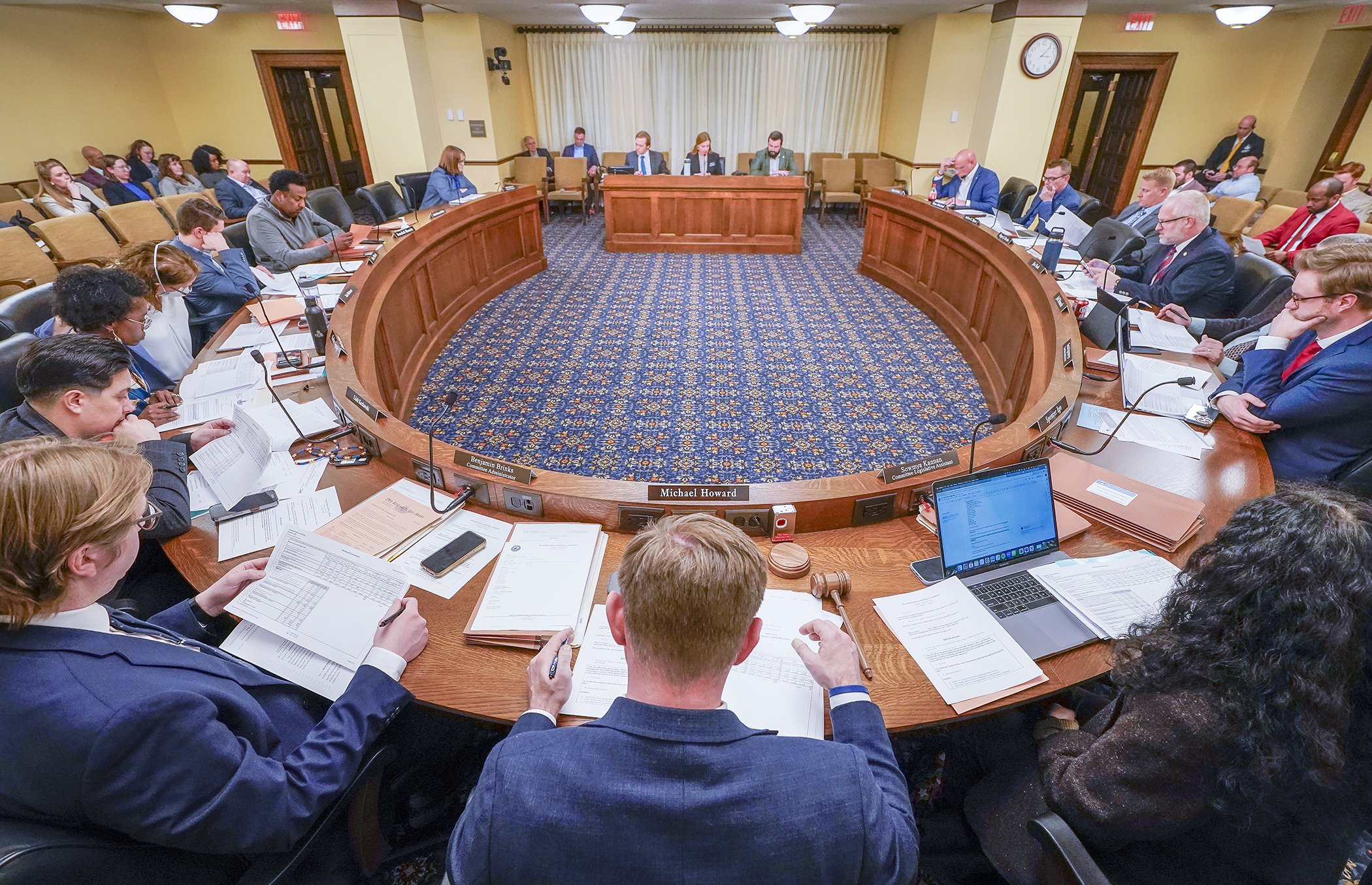Housing panel advances budget bill with $75 million funding increase, focus on affordability

Rep. Spencer Igo (R-Wabana Township) said everyone involved with the House Housing Finance and Policy Committee can be proud of the budget bill they ultimately produced.
It tackles the issues often talked about in the committee: affordability, accessibility, diversity and sustainability of housing, he said, adding the bill is possible because committee members listened to each other and were willing to compromise.
“I think this is the only committee that produced a budget bill (for the 2026-27 biennium) without a single roll-call vote,” said Igo, who co-chairs the committee with Rep. Michael Howard (DFL-Richfield).
Igo sponsors HF2445, which calls for a $319.62 million appropriation from the General Fund to the Minnesota Housing Finance Authority — a $75 million increase over February’s forecast base. This includes resources that would allow the sale of $100 million in Housing Infrastructure Bonds, the state’s largest source of capital for the development of homes.
Tuesday’s committee meeting was a walkthrough of a delete-all amendment and the sharing of public testimony. The committee plans to consider amendments and vote on the bill Wednesday.
[MORE: View the financial spreadsheet; read written testimony]
Minnesota Housing Commissioner Jennifer Leimaile Ho appreciates the $75 million in new funding, which is the largest target for any of the House finance committees.
“This will help thousands of renters, developers and homeowners across the state,” Ho said.
One of the larger appropriations would be $51.14 million, with $30.6 million in new spending, for the Family Homeless Prevention and Assistance Program, which is chronically oversubscribed, said Libby Murphy, Minnesota Housing Partnership director of policy. She added that funds are often out the door in a few days, and it would take $350 million annually to meet the need of emergency assistance.
Other proposed increases over base funding include:
- $20 million for Greater Minnesota Housing Infrastructure Grant Program to help with infrastructure costs that can be one of the largest barriers keeping communities from adding more housing;
- $10 million each for Economic Development Housing Challenge Program, and Greater Minnesota Workforce Housing Development program, which helps with the development of affordable rental housing;
- $3 million for Workforce and Affordable Homeownership Development Program, which offers grants to local government entities and nonprofits to build or rehabilitate single-family homes; and
- $2 million for manufactured home park infrastructure grants.
The bill also includes provisions arising from a task force on the sustainability of affordable housing. They aim to address operational deficits in the affordable housing sector, estimated at $50 million per year.
Additionally, it would provide funding to establish a tenants’ education hotline and an accessible housing task force.
While the target for housing shows $75 million in new spending, it is less than the dollars budgeted in the 2024-25 biennium, when the Legislature passed an historic $1.07 billion budget that included $950 million in one-time cash.
Though appreciative of the bill as a whole, several testifiers mentioned First Generation Downpayment Assistance Grants and Homebuyer Education Counseling and Training programs to target for additional funding should the opportunity arise.
******
The following are selected bills that have been incorporated in part or in whole into the omnibus housing finance bill:
Related Articles
Search Session Daily
Advanced Search OptionsPriority Dailies
Speaker Emerita Melissa Hortman, husband killed in attack
By HPIS Staff House Speaker Emerita Melissa Hortman (DFL-Brooklyn Park) and her husband, Mark, were fatally shot in their home early Saturday morning.
Gov. Tim Walz announced the news dur...
House Speaker Emerita Melissa Hortman (DFL-Brooklyn Park) and her husband, Mark, were fatally shot in their home early Saturday morning.
Gov. Tim Walz announced the news dur...
Lawmakers deliver budget bills to governor's desk in one-day special session
By Mike Cook About that talk of needing all 21 hours left in a legislative day to complete a special session?
House members were more than up to the challenge Monday. Beginning at 10 a.m...
About that talk of needing all 21 hours left in a legislative day to complete a special session?
House members were more than up to the challenge Monday. Beginning at 10 a.m...